Solving China's soaring youth unemployment
In 2023, a record of 11.58 million students in China are expected to graduate from higher education institutions. But the perennial struggle to find employment after graduation is especially dire this year. How will China's youths cope with the situation, and what measures have the Chinese government put in place to stabilise employment?

(By Caixin journalists Huang Huizhao, Han Wenrong, Hu Xueyang and Kelly Wang)
"I've submitted almost 100 resumes but have gotten zero offers so far," job seeker Yang Yang said. Despite almost five months of looking for a job and having graduated from the prestigious Chinese University of Hong Kong, she is one of the millions of students entering a fierce job hunting race this year.
Like Yang, the class of 2023 is entering the job market amid an economic slump following three years of strict Covid-19 control measures and regulatory crackdowns on tech, property and private tutoring industries which are normally eager to hire young talent.
A report from the China Institute for Employment Research and Chinese jobs board Zhaopin Ltd. showed the ratio between market demand and job applicants was 0.57 for college graduates in the third quarter in 2022, lower than the 1.24 figure in 2021 and 1.38 in 2020. A ratio below 1 indicates fierce competition for jobs and low confidence among job seekers.
In 2022, China recorded an average youth employment rate of 17.5% among urbanites aged 16 to 24 years old. During the graduation season last July, that number hit 19.9% indicating that almost one out of every five young urbanites was jobless, the highest ratio since record keeping began in 2018.
Among them, the situation for college graduates is even worse with their unemployment rate estimated at 1.4 times that of youth as a whole, according to a report written by Zhuo Xian, vice department director at the Development Research Center of the State Council.
"The anxiety, disappointment and confusion generated by college students, who are the most energetic group in society, may affect the confidence of the whole society in the prospects for economic development," Zhuo wrote.
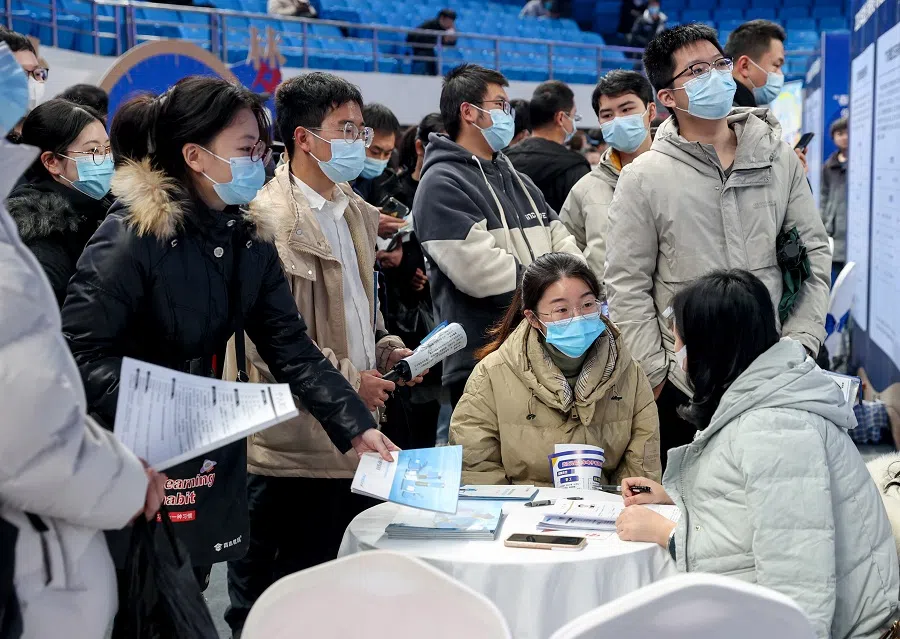
When compared internationally, the average youth unemployment rate in OECD countries in 2022 was around 12.8%. In the US, the number was kept below 9% last year, after peaking at 27.4% in April 2020.
To ease domestic joblessness, the central and local governments have been rolling out measures such as state-funded employment programmes, while encouraging state-owned enterprises to hire fresh graduates.
But against the backdrop of a macroeconomic slump and local financial difficulties, experts say the public sector effort alone is not enough to absorb the increasingly large number of unemployed college students - the focus should be on how to spur and maintain confidence among private businesses.
During the third quarter of 2022, the usual fall hiring season, companies' demand for fresh college graduates fell 12.2% year-on-year while the number of job applicants soared 91.3%. - Zhaopin report
Rising supply meets weakening demand
The number of college graduates in China has been on the rise following the restoration of college entrance exams in the late 1970s. After a broad university enrolment expansion programme started in 1999, it led to an era that saw double-digit growth in the early 2000s. In 2023, a record of 11.58 million students in China are expected to graduate from higher education institutions, a 7.6% increase compared to last year's estimate. In 2020, the education ministry announced that it will increase the intake of graduate programme admissions by 189,000. The 20% year-on-year expansion is a much higher rate than the previous average of 5-6% growth. And the cohort is due to graduate and enter the job market this year.
The perennial struggle to find employment after graduation is especially dire this year. During the third quarter of 2022, the usual fall hiring season, companies' demand for fresh college graduates fell 12.2% year-on-year while the number of job applicants soared 91.3%, Zhaopin's report showed.
According to Lu Feng, a professor at Peking University's National School of Development, the rising number of graduates seeking jobs will have a limited impact on the unemployment rate - at most a 0.5 to 1.0 percentage point increase in the short term. What's more pressing is the weakening demand that's driving up the youth jobless rate.
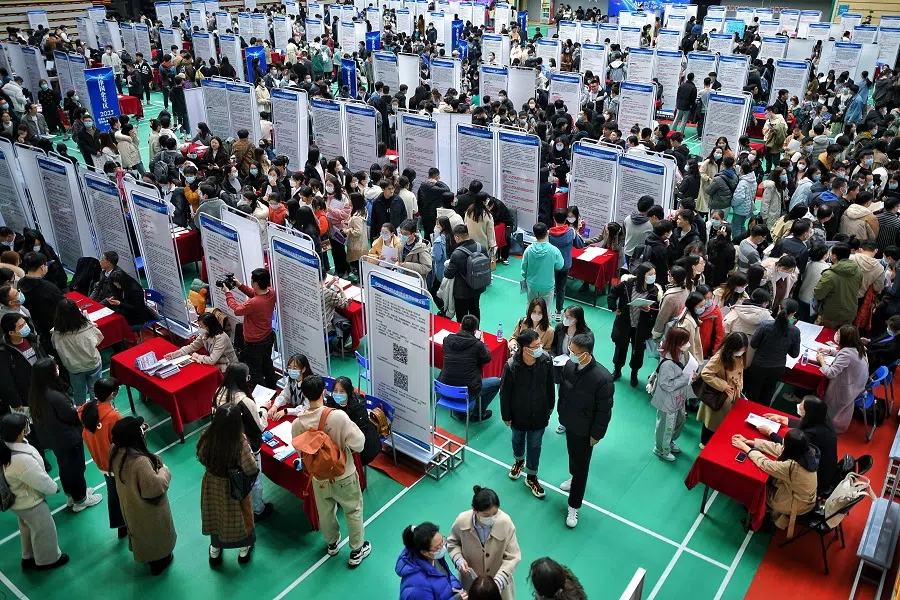
Last August, the founder of tech giant Huawei Technologies Co. Ltd., Ren Zhengfei, urged the company to immediately cut all unprofitable product lines, predicting a grim future for the world economy amid Russia's war with Ukraine and the US tech blockade against China.
Other major internet heavyweights, such as TikTok's parent company ByteDance Ltd. and delivery giant Meituan Dianping, cut their graduate hiring headcount last fall. In addition, Alibaba Group Holding Ltd. and Tencent Holding Ltd. conducted massive layoffs during the second quarter in 2022 amid Beijing's sweeping crackdown on the tech sector.
Feng Lijuan, chief HR consultant at job board and recruitment site 51job Inc., told Caixin that around 60% of more than 100 leading companies from various fields that were polled have cut student hiring quotas, adding that "a few are not recruiting anyone at all".
Students also say they are being offered lower compensation packages. "If you want to negotiate salary with them, their attitude is very firm - 'this is the best we can offer, if you don't want it, we will just look for the next candidate,'" bioengineering student Pu Jia said.
Pu was forced to turn to mid- and small-sized enterprises after learning that employers on her wish list, like Huawei, were not hiring in 2022. "The choices that I initially considered as safety choices are now the best ones I have."
From job hunting to hitting the books
On 5 March, former Premier Li Keqiang presented a government work report to the National People's Congress, where he said China will create 12 million urban jobs and made solving the problem of finding employment for college graduates a priority.
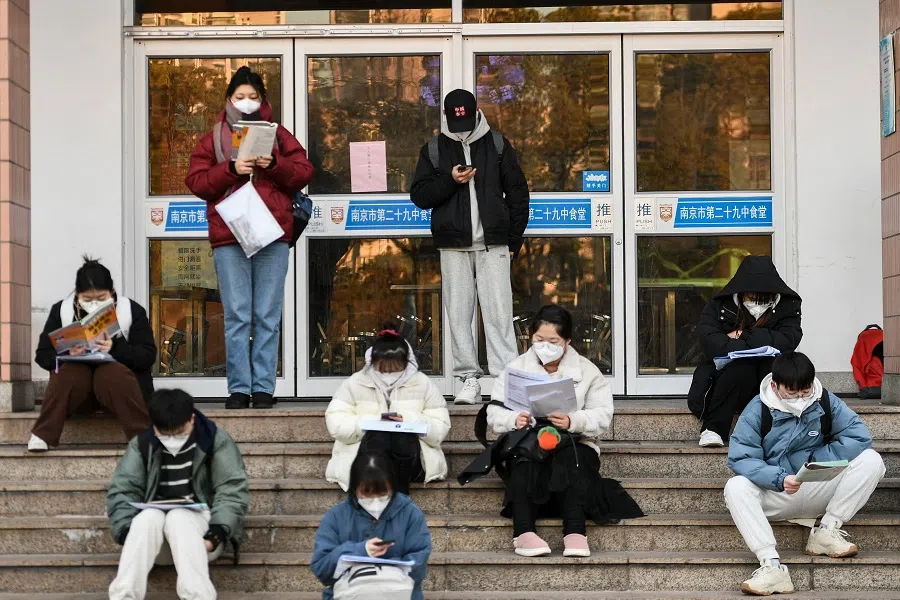
Since the pandemic began, the government has been rolling out measures to help absorb the large number of unemployed college graduates. These include expanding graduate programme admissions, opening more civil servant positions, and offering high salaries to fresh graduates who are willing to work in less developed regions.
The pursuit of further qualifications could disadvantage fresh grads from acquiring the necessary industry experience, as exam material is often irrelevant to skills required in the workplace. - Zhuo Xian, Vice Department Director, Development Research Center of the State Council
Among these options, the academic route has proven widely popular. During the past three years of the Covid-19 pandemic, a rising percentage of students are sitting graduate school exams a second or even third time.
In 2023, a record 4.74 million registered for the graduate programme entrance examinations, which is 170,000 more people compared to 2022. More than 60% of the exam takers chose to apply for graduate schools amid pressure to find a job, a 2022 study from education platform China Education Online showed.
According to the State Council's Zhuo, the pursuit of further qualifications could disadvantage fresh grads from acquiring the necessary industry experience, as exam material is often irrelevant to skills required in the workplace. "Some students have transitioned from being slow to get employed to being lazy or afraid to find work, or even unwilling to be employed," he added.
Meanwhile, the government is continuing to make more jobs available to fresh graduates, with 25,000 positions especially catering to the fresh graduates offered by the central government, accounting for over 67% of national civil servant positions, a significant increase from 40% in previous years.

However, as local finances have become increasingly strained due to the mounting toll from Covid-related expenses, it's more difficult for such programmes to provide a sustained solution to the employment issue. The consensus among the interviewees is that the long-term solution to solving youth unemployment requires the market and private enterprises.
Where the jobs are at
For a long time, the internet, real estate and education sectors were traditionally known to hire fresh graduates in abundance, according to Nie Riming, a researcher at the Shanghai Institute of Finance and Law. But since 2020, a regulatory storm that descended on these industries had prompted mass layoffs and a scaling back of operations.
There are signs that things will change in 2023. In January, the government announced that its more than two-year clampdown on the sprawling internet sector was coming to an end. Separately, former Vice-Premier Liu He in December had announced that the government is considering more measures to help property developers improve their balance sheets.
Experts said there needs to be a combination of accurately forecasting industry needs and ensuring that fresh graduates cultivate a broad set of interdisciplinary qualities in order to cope with changing societal demands.
Additionally, high-end manufacturing sectors such as new energy, new materials and intelligent manufacturing have shown resilience amid the pandemic. Such industries exhibited 20% growth year-on-year in terms of school hiring numbers and salaries offered for fall 2023, according to BOSS Zhipin, one of the leading online recruitment platforms in China.
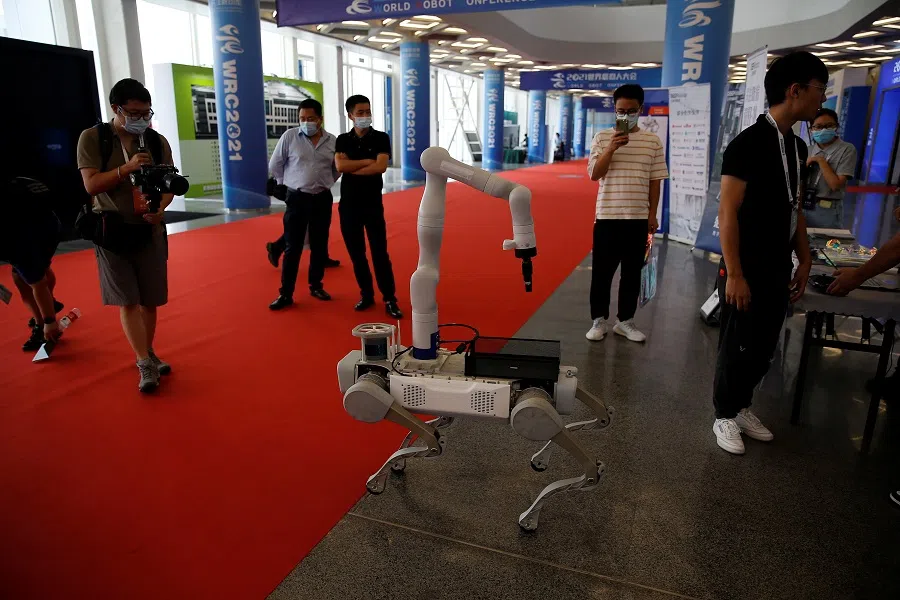
China's electric vehicle manufacturer, BYD Co. Ltd., expanded its investment and factory scale in 2022 with government support. Caixin learned that they are looking for more than 30,000 college graduates in several cities including Shenzhen, Xi'an and Changsha.
However, BYD remains a rare example in the current hiring market as the gap between industry demands and graduates' skills remains large. Experts said there needs to be a combination of accurately forecasting industry needs and ensuring that fresh graduates cultivate a broad set of interdisciplinary qualities in order to cope with changing societal demands.
"In the era of economic globalisation and digitalisation, which is driven by innovation, college graduates often lack skills in areas such as financial literacy, entrepreneurship, computer and digital literacy, foreign language ability, and an international mindset, which are demanded by the market," a study by Yue Changjun, a professor at Peking University's Graduate School of Education, showed.
(All names of students interviewed in the article are pseudonyms.)
This article was first published by Caixin Global as "In Depth: Solving China's Soaring Youth Unemployment". Caixin Global is one of the most respected sources for macroeconomic, financial and business news and information about China.
Related: Chinese provinces' battle for talents and workers after Chinese New Year | China's youths are feeling the pressure from low wages | Depression among China's college students reveals anxieties about jobs and Covid | Post-00s youths want to rewrite workplace norms in China | Record 10.76 million Chinese university graduates face bleak job market and struggling economy



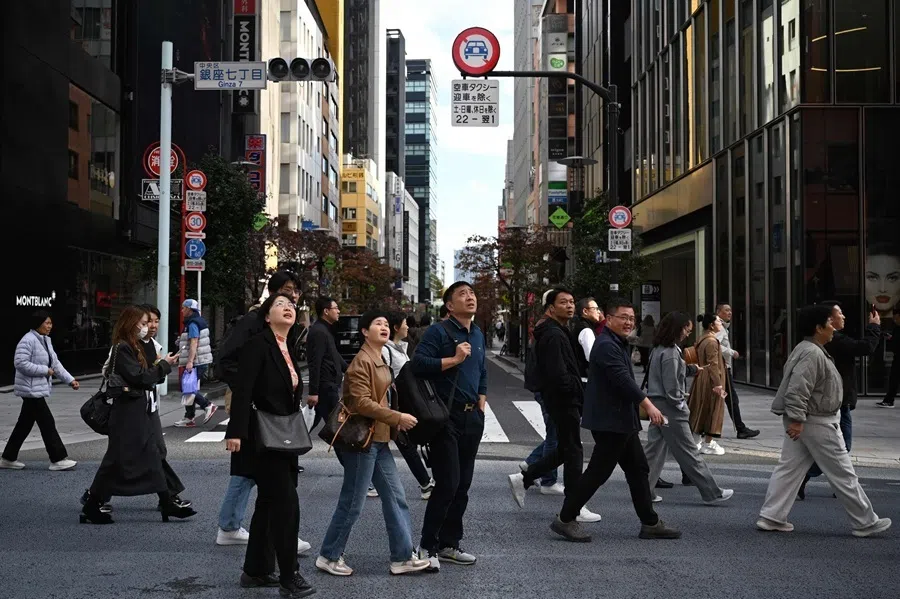

![[Big read] China’s 10 trillion RMB debt clean-up falls short](https://cassette.sphdigital.com.sg/image/thinkchina/d08cfc72b13782693c25f2fcbf886fa7673723efca260881e7086211b082e66c)